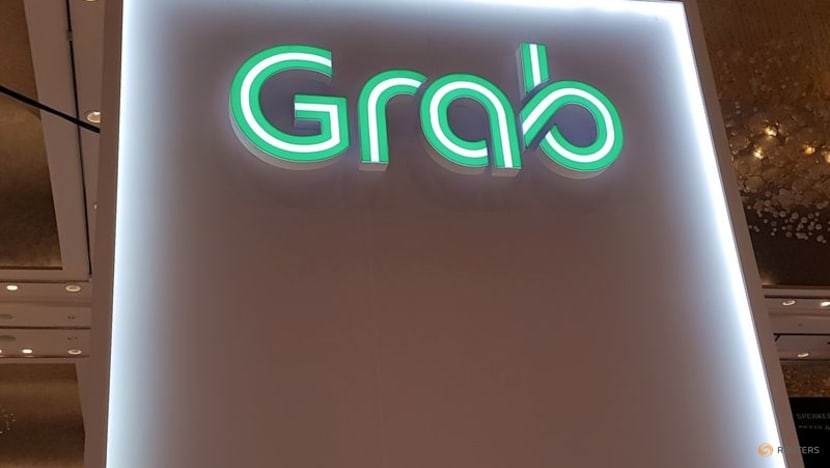Grab discontinues investment offerings AutoInvest and Earn+, says business not commercially viable in long run
“As we will no longer be investing to scale GrabInvest, we have concluded that the business will not be commercially viable in the long run,” a Grab spokesperson tells CNA.

FILE PHOTO: A Grab logo is pictured at the Money 20/20 Asia Fintech Trade Show in Singapore March 21, 2019. REUTERS/Anshuman Daga/File Photo
SINGAPORE: Grab is pulling the plug on its retail investment products and services in Singapore, after a review of the GrabInvest business concluded that it will “not be commercially viable” in the long run.
Customers were notified via email on Monday (Sep 25) that Grab was discontinuing its two investment products – AutoInvest and Earn+ – and will not be accepting new deposits.
Customers have until Oct 13 to withdraw their money from these products. After which, accounts will be closed, and no further transactions will be permitted.
Singapore-headquartered Grab made its move into the retail wealth management space in 2020 after acquiring Bento Invest, a Singapore-based robo-advisory start-up.
AutoInvest, which allows users to invest sums as low as S$1 (US$0.70) with each eligible transaction, was its first investment product. Investments go into money market and short-term fixed income mutual funds, offering returns of up to 1.18 per cent per annum.
Grab rolled out its second product Earn+ in May last year, alongside the rebranding of its financial arm. Earn+ was billed as a “low-risk” way for users to invest into institutional funds and earn higher returns of 2 to 2.5 per cent per annum on their idle cash.
GrabInvest and its micro-investment offerings are only available in Singapore.
Responding to CNA’s queries, Grab said: “We have made the decision to wind down GrabInvest and its associated products, AutoInvest and Earn+, in Singapore.
“As we will no longer be investing to scale GrabInvest, we have concluded that the business will not be commercially viable in the long run.”
The spokesperson added that the decision is part of the firm’s ongoing efforts to streamline its financial services business “to focus on products with strong ecosystem synergies” such as GrabPay, insurance and lending.
“We remain committed to serving consumers and our partners through these financial offerings.”
Grab’s exit from the retail wealth management space due to profitability concerns echo that of Moneyowl, which announced in August that it would be shutting down by the end of this year.
MoneyOwl, a financial adviser set up by NTUC Enterprise Co-operative in 2018, said it decided to close shop after a review found that the business would not be commercially viable.
GOODWILL GESTURE TO CREDIT BACK LOSSES
Grab, in its email to customers, noted that its decision to discontinue the investment offerings “may result in an earlier than desired redemption” of fund units held by customers.
“Where your redemption takes place on and from Sep 25, 2023, and results in a negative dollar value return on your portfolio, we will credit that equivalent dollar value to your GrabPay Wallet as a gesture of goodwill,” it said.
Grab did not respond to queries about how many customers are affected and will receive goodwill compensation.
The latest move comes as Grab, Southeast Asia’s biggest ride-hailing and food delivery firm which also extended its reach into the digital banking space, is fighting to turn a profit and win back investors.
It narrowed losses in the second quarter, as cost savings from a recent layoff supplement strong demand for its food delivery and ride-hailing services. The firm slashed more than 1,000 jobs, or about 11 per cent of its workforce, in June.
Grab now expects to break even on an adjusted core earnings basis in the current quarter ending September, ahead of its earlier fourth-quarter target.
















